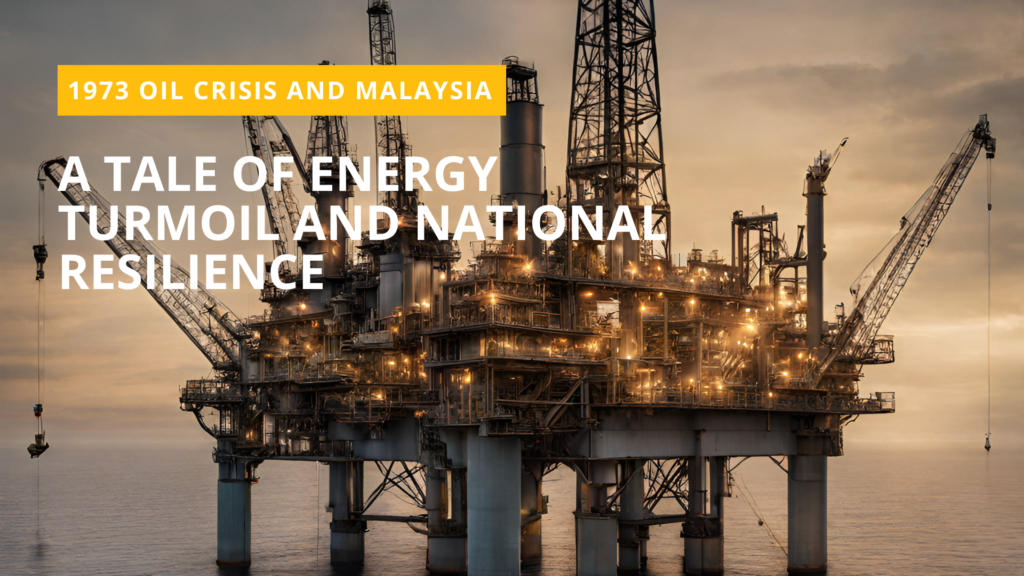The 1973 oil crisis is a pivotal moment in global energy history, reshaping economies, policies, and the fabric of international relations. At the heart of this crisis lies the Organization of Arab Petroleum Exporting Countries (OAPEC) and their decision to wield oil as a geopolitical weapon. But how did this crisis impact Malaysia, and what role did PETRONAS play in the nation’s response? Let’s delve into this fascinating chapter.

The 1973 Oil Crisis: Origins and Impact
The Embargo
In October 1973, OAPEC declared an oil embargo against nations that had supported Israel during the Yom Kippur War. Countries like the United States, Canada, Western European allies, and Japan were cut off from vital oil supplies. The oil price soared globally, rising from a mere USD 3 per barrel to nearly USD 12 per barrel.
The First Oil Shock
The crisis had both short-term and long-term effects on the global economy and politics. It became known as the “first oil shock”, distinct from the later 1979 oil crisis triggered by the Iranian Revolution. The shockwaves reverberated across continents, leading to energy shortages, inflation, and economic disruptions.
Malaysia’s Vulnerability
Malaysia, like many other nations, felt the tremors of the crisis. Its dependence on foreign oil raised concerns about energy security. The country realised that relying solely on oil imports left it vulnerable to external shocks. Something had to change.
PETRONAS: Birth of a National Champion
The Genesis
In 1974, Malaysia took a bold step by establishing PETRONAS (Petroliam Nasional Berhad). This state-owned oil and gas company became the custodian of Malaysia’s hydrocarbon resources. Its mission to ensure energy self-sufficiency, control over oil reserves, and economic stability.
Key Milestones
- 1983: PETRONAS entered the refining and distribution market.
- 1985: The Peninsular Gas Utilization Project began, enhancing natural gas supply.
- 1990: PETRONAS expanded its oil exploration beyond Malaysia’s borders.
- 1994: PETRONAS Dagangan Bhd, a subsidiary, listed on the Kuala Lumpur Stock Exchange.
- 2003: The Malaysia LNG Tiga Plant opened, bolstering liquefied natural gas production.
PETRONAS’s Role
PETRONAS became more than an energy company; it embodied national resilience. Its contributions included:
- Energy Security: PETRONAS ensured Malaysia’s access to oil and gas resources, shielding the nation from external shocks.
- Economic Growth: PETRONAS fueled industrial development and job creation by investing in infrastructure.
- Global Reach: PETRONAS ventured beyond borders, becoming a global player in the energy arena.
Legacy and Lessons
The 1973 oil crisis left an indelible mark on Malaysia’s energy policies. PETRONAS became a beacon of self-reliance, steering the nation toward sustainable energy practices as we face new challenges, e.g. climate change, decarbonisation, and energy transition – PETRONAS’s legacy reminds us that resilience and vision are essential.
In conclusion, the 1973 oil crisis birthed PETRONAS, a national champion that continues to shape Malaysia’s energy destiny. Let us learn from history and chart a course toward a greener, more secure future.
References:
- Wikipedia. (2023). 1973 oil crisis.
- Cambridge University Press. (2022). Malaysia’s expansion of its maritime jurisdiction and the World Oil Crisis, 1973–80.